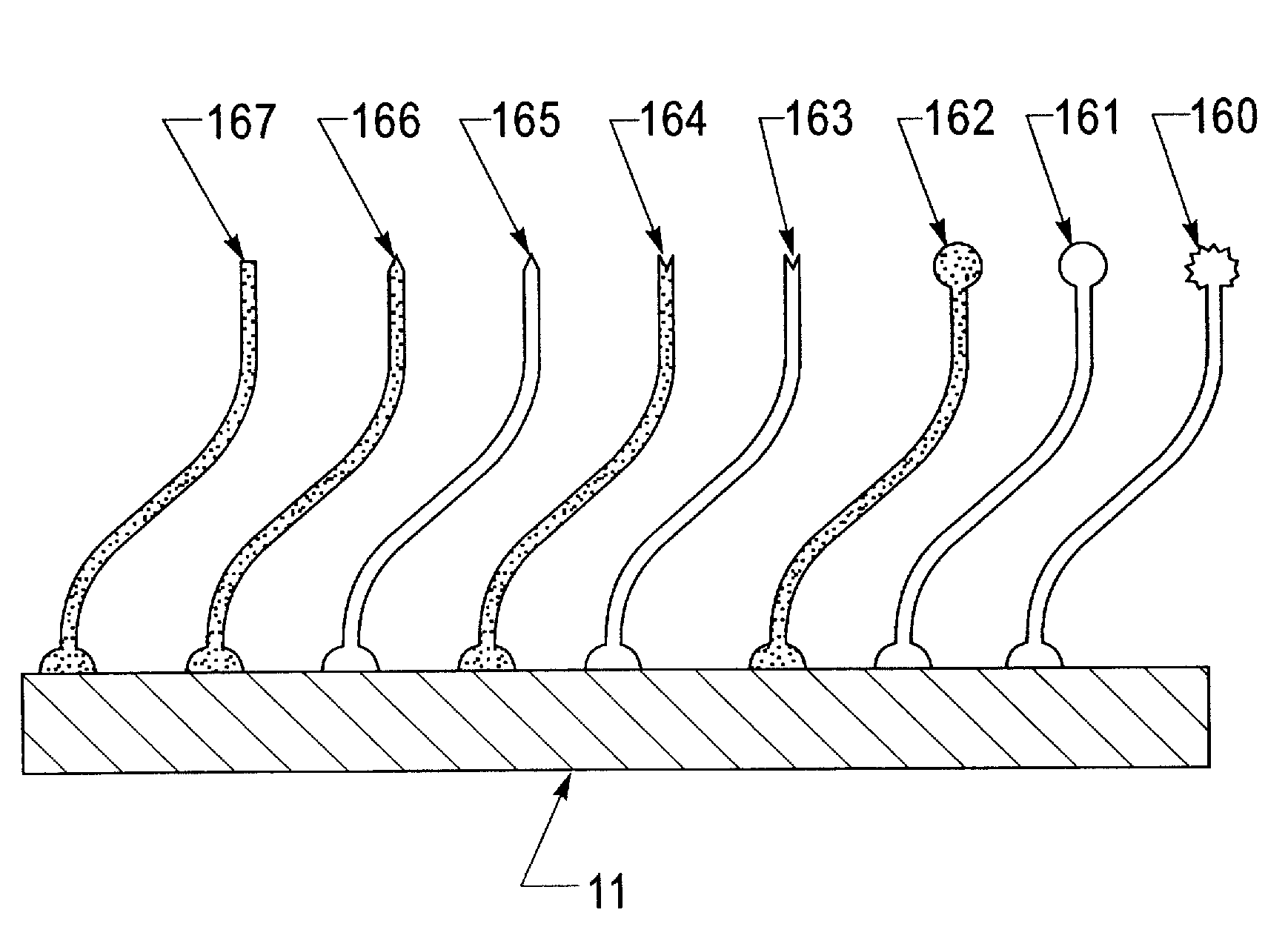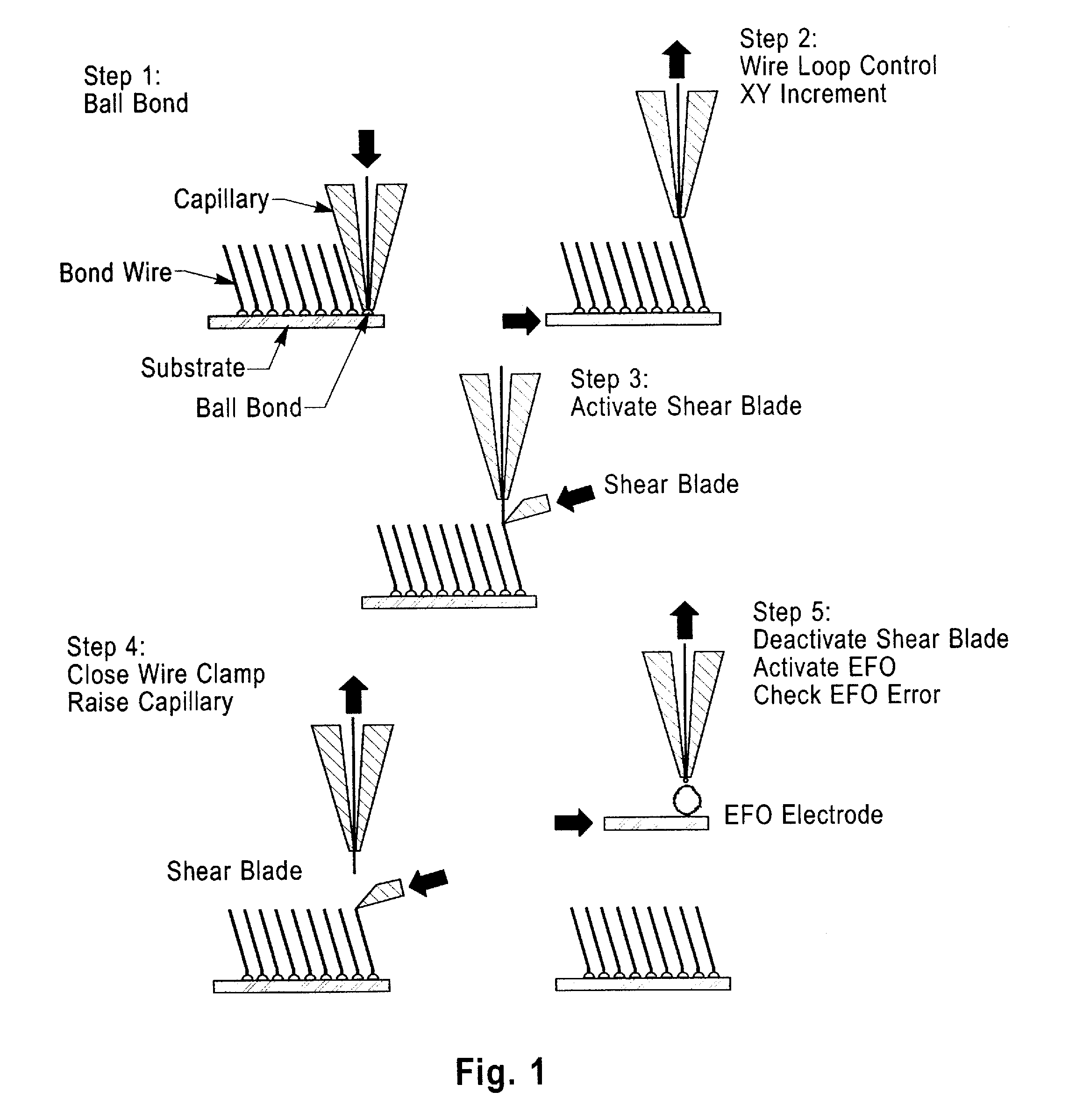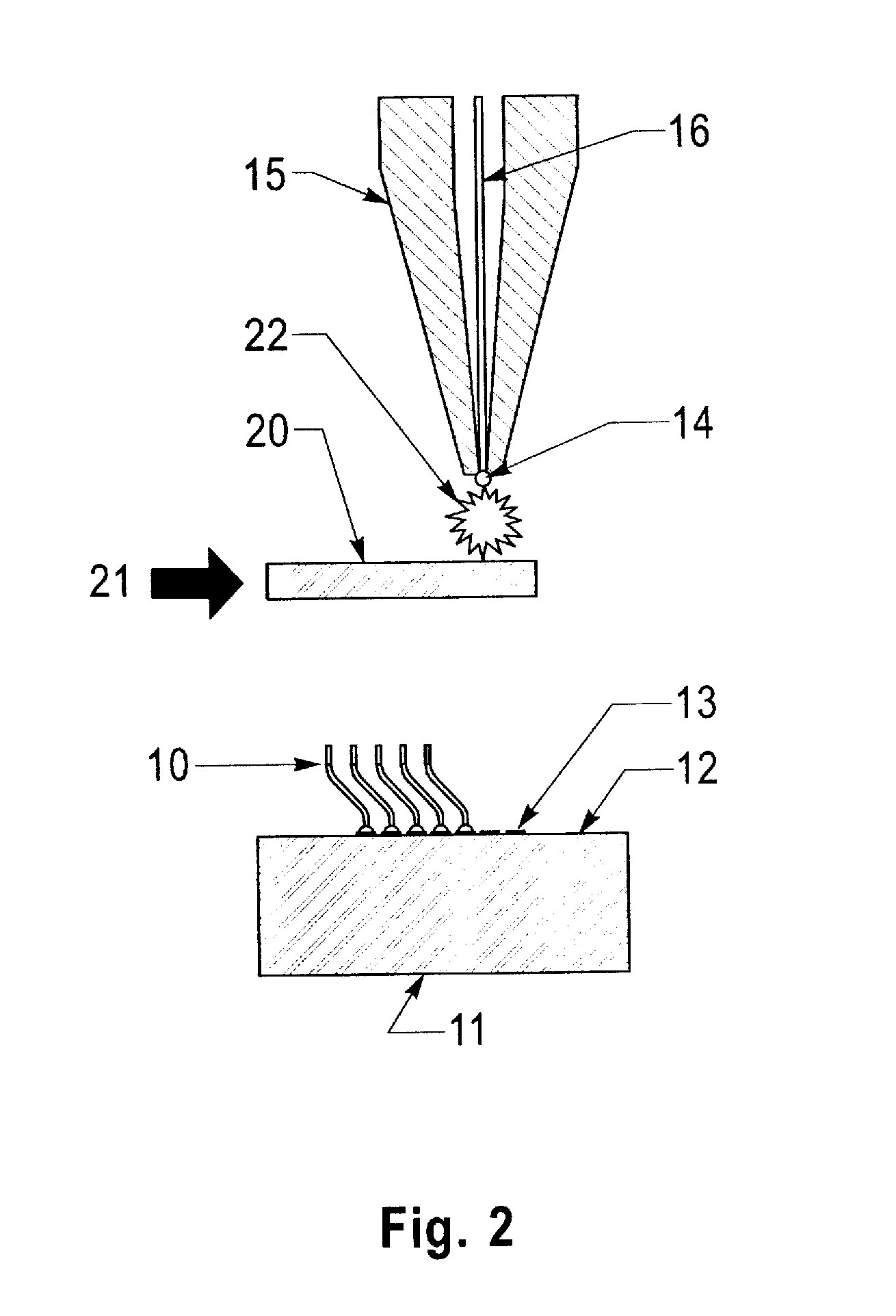Angled flying lead wire bonding process
a technology of flying lead wire and bonding process, which is applied in the direction of manufacturing tools, instruments, non-electric welding apparatus, etc., can solve the problem that the conventional wire bonding process is not useful in fabricating such structures
- Summary
- Abstract
- Description
- Claims
- Application Information
AI Technical Summary
Benefits of technology
Problems solved by technology
Method used
Image
Examples
Embodiment Construction
[0019]Structures according to the present invention are made using a wire bonding operation is shown in FIG. 1 and starts by forming a ball on the end of a (preferably) gold wire 110 that is threaded through a hollow pointed ceramic tool called a capillary 115. The ball 112 is pressed against the first bonding surface 116 of substrate 118 while the substrate 118 is heated from below and ultrasonic energy is applied through the capillary 115 as shown in step 1 of FIG. 1. The metallurgy on the surface of the substrate is critical to the wire bonding process. After ball bonding the wire to the first substrate surface 116, the capillary 115 is raised while the substrate is moved (shown by arrow 120) to create a loop shape in the wire (FIG. 1—step 2). The capillary 115 is then lowered to press the side 124 of the wire against the second substrate 126 surface 128 to form the second bond or wedge bond 130 (FIG. 1—step 3). The capillary is raised slightly indicated by arrow 132 and a mechan...
PUM
| Property | Measurement | Unit |
|---|---|---|
| diameter | aaaaa | aaaaa |
| diameter | aaaaa | aaaaa |
| plurality of angles | aaaaa | aaaaa |
Abstract
Description
Claims
Application Information
 Login to View More
Login to View More - R&D
- Intellectual Property
- Life Sciences
- Materials
- Tech Scout
- Unparalleled Data Quality
- Higher Quality Content
- 60% Fewer Hallucinations
Browse by: Latest US Patents, China's latest patents, Technical Efficacy Thesaurus, Application Domain, Technology Topic, Popular Technical Reports.
© 2025 PatSnap. All rights reserved.Legal|Privacy policy|Modern Slavery Act Transparency Statement|Sitemap|About US| Contact US: help@patsnap.com



